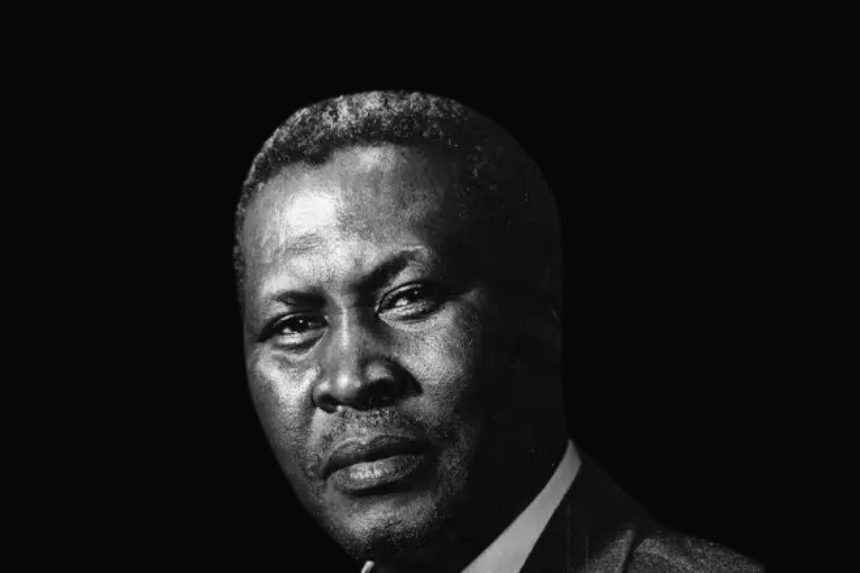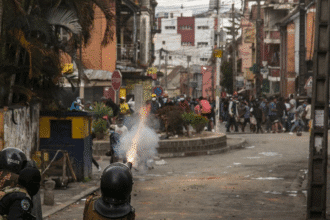Few figures command the moral weight, reverence, and historical significance of the liberation icon known to the world as Albert Luthuli. His life remains a beacon of justice, humility, and peaceful resistance, and his story continues to shape democratic South Africa. Modern society honors him through major institutions and a preserved public memory, while the truth about his death has now been reclaimed through a landmark court ruling. The journey of this towering leader reflects not only the fight for freedom but a deep human devotion to dignity, community, and reconciliation.
- Albert Luthuli’s historic ruling and struggle for justice
- Albert Luthuli’s early life, leadership roots, and values
- Albert Luthuli, ANC leadership, and Nobel recognition
- Albert Luthuli’s mysterious death, truth, and legacy
- Albert Luthuli National Honor through institutions
- Albert Luthuli municipal legacy and civic respect
- Conclusion: The undying torch of Albert Luthuli
- FAQs
Albert Luthuli’s historic ruling and struggle for justice
The recent legal breakthrough in Pietermaritzburg has changed the national understanding of how the Nobel Peace laureate died. For decades, apartheid narratives insisted that he was struck accidentally by a train. However, court findings now recognize he was killed through violent actions linked to the security police and supported by railway officials. This ruling restores historical integrity and validates the pain carried by his family, especially his daughter, Albertina Luthuli, who fought tirelessly to expose the truth.
State deception and decades of silence
Apartheid institutions controlled the original investigation, suppressing evidence and manipulating reports. Testimonies, medical files, and contradictions from the original inquest were finally challenged. The reopened inquiry confirmed that injuries to the anti-apartheid leader’s head were consistent with violence rather than an accident, exposing a hidden chapter of state brutality.
Why the ruling matters
This judgment is more than a legal correction — it honors the sacrifice of a founding democratic father. It ensures future generations understand that his voice was silenced by a regime threatened by his moral authority. The outcome also sets a precedent for revisiting unresolved struggle-era cases.
Operation Jackal III Exposes Scale of Black Axe Crime Network
Albert Luthuli’s early life, leadership roots, and values
Born in 1898 in colonial Natal, the man later known as Inkosi Albert Luthuli was shaped by his upbringing in mission environments in South Africa and Zimbabwe. A teacher by profession, he believed education was a sacred duty. His acceptance of the chieftaincy of Groutville reflected his lifelong commitment to service. Villagers respected him not for authority, but for fairness, patience, and deep respect for tradition and community.
From teacher to tribal leader
His teaching career helped instill moral conviction and public responsibility. These experiences prepared him to later stand against systemic oppression with calm determination. As chief, he mediated disputes, defended land rights, and promoted social upliftment.
Spirit of faith and humility
Religion formed the core of his identity. Christianity deepened his dedication to peace, and this spiritual grounding later guided his resistance strategy — firm but non-violent, moral yet determined.
Albert Luthuli, ANC leadership, and Nobel recognition
The election of the Groutville chief as ANC President-General in 1952 reshaped the liberation movement. Under his guidance, the movement expanded its civil-resistance campaigns and sought unity across communities and ideologies. Though persecuted, banned, and monitored, he never abandoned the belief that justice would prevail through peaceful resistance.
Leading under oppression
Despite the isolation imposed by the apartheid authorities, the humanitarian leader continued directing resistance campaigns. He inspired unity when the nation was fractured by oppressive laws, and his leadership during the Defiance Campaign remains a symbol of collective courage. Visit our homepage for more information.
Nobel Peace Prize and global stature
In 1960, he became the first African Nobel Peace Prize laureate. His Oslo speech emphasized hope, equality, and human solidarity. That global honor placed him among the world’s most respected peace figures, long before Africa gained broader political independence.
Albert Luthuli’s mysterious death, truth, and legacy
In 1967, apartheid authorities claimed the freedom visionary died after being hit by a goods train near his home. Yet the truth was concealed: his injuries were consistent with a violent attack, and he was denied urgent neurological care. Instead of a major facility like King Edward VIII, he was inexplicably transported to Stanger Hospital, where limited resources and questionable medical decisions sealed his fate. Evidence from witnesses now confirms what many suspected — the apartheid state eliminated a moral leader who inspired millions.
Medical neglect and unanswered questions
His sudden death involved delayed treatment, suspicious handling by police, and a medical intervention that appeared to aggravate rather than treat his brain trauma. Witness statements and expert analysis presented in the reopened inquiry pointed to foul play and orchestrated negligence.
Restoring dignity and historical accuracy
The court ruling not only rejects the apartheid narrative but also honors his humanity. South Africa has reclaimed its truth, and history now records the liberation saint not as a victim of an accident but as a martyr to state violence.
Albert Luthuli National Honor through institutions
South Africa honors his memory daily through major institutions and public landmarks. Among the most prominent tributes is the advanced Inkosi Albert Luthuli Central Hospital in Durban, also known as Inkosi Albert Luthuli Central Hospital IALCH, Albert Luthuli Hospital, and Chief Albert Luthuli Hospital. This modern medical complex symbolizes excellence and compassion, values he championed.
Services and public interest in hospital access
Community members frequently seek information regarding Albert Luthuli Hospital visiting hours, Albert Luthuli Hospital fees, and the Albert Luthuli Hospital doctors’ list. Medical students also reference the Chief Albert Luthuli campus and research programs associated with the institution. The hospital’s reputation for specialist care inspires trust across KwaZulu-Natal. Families often look for Albert Luthuli visiting hours, facility images like Inkosi Albert Luthuli Central Hospital photos, and direct assistance through the Inkosi Albert Luthuli Hospital phone number.
Meaning of healthcare tribute
Placing his name on a premier medical center honors his commitment to humanity. Healing, dignity, and community support align with the values he upheld throughout his life and activism.
Albert Luthuli municipal legacy and civic respect
In Mpumalanga, the Chief Albert Luthuli Municipality, often called Albert Luthuli Municipality, reflects his values through public service and community advancement. Development programs, infrastructure initiatives, and cultural commemorations pay tribute to his leadership style — one rooted in accountability and welfare.
Civic development and memory
Local governance in the municipality aspires to fairness and participatory leadership. Streets, schools, statues, and community halls in the region carry his name, ensuring his memory remains alive in daily social life. Programs encourage youth leadership and cultural pride, drawing inspiration from his principles.
Albert Luthuli’s family role and legacy protection
The Luthuli family has been central to preserving the truth and protecting his honor. Albertina Luthuli and other descendants championed the campaign to reopen the inquest, working with legal advocates, historians, and civic groups. Their courage reflects the same resilience embodied by their father, grandfather, and national ancestor.
Memory across generations
Family members continue participating in memorial lectures, heritage programs, and educational initiatives. Their dedication ensures that history is not misrepresented, and truth remains rooted in justice rather than colonial propaganda.
Conclusion: The undying torch of Albert Luthuli
South Africa’s democratic identity is incomplete without remembering the wisdom and courage of Albert Luthuli. His voice — calm, moral, unbroken — still echoes across the nation. Schools, hospitals, municipalities, and museums honor him not only in name, but in spirit. The truth about how he died is now restored, and the moral victory belongs not just to his family, but to every citizen who values freedom and dignity.
He showed that liberation could be guided by conscience. He taught that peace was strength, not surrender. And today, the nation walks forward with his legacy as a guiding flame. His journey did not end at the railway tracks — it became a timeless chapter in the story of human justice and African pride. Read another article on South Africa’s Pursuit of Justice for Apartheid-Era Victims
FAQs
- Who was Chief Albert John Mvumbi Luthuli?
He was a respected traditional leader, teacher, and global peace advocate who became President-General of the African National Congress. His moral leadership, commitment to non-violence, and dedication to justice earned him international admiration and the Nobel Peace Prize in 1960. - How did the anti-apartheid leader die?
His passing was long claimed to be a railway accident, but a South African High Court ruling has now determined he died due to deliberate violence linked to security forces during the apartheid era. The ruling formally rejects the accident narrative and recognizes him as a victim of state-sanctioned persecution. - Why is there a hospital named after him?
The advanced Inkosi Albert Luthuli Central Hospital honors his humanitarian values. It symbolizes dignity, community service, and dedication to improving lives — values he championed throughout his leadership and activism. - What are the visiting hours for the Durban hospital named in his honor?
Visiting schedules can vary based on hospital wards, emergency restrictions, and medical guidelines. For accurate information, patients and families should contact the hospital directly or consult its latest public notices. - Where is Chief Albert the Luthuli Municipality located?
It is situated in Mpumalanga, South Africa. The municipality reflects his legacy through community programs, civic development, and public services inspired by his principles of fairness, unity, and progress. - Is there a biography available?
Yes, several biographies document his life, including his own autobiography titled Let My People Go, which provides deeper insight into his leadership journey, spiritual foundation, and experiences in the struggle against racial oppression.








